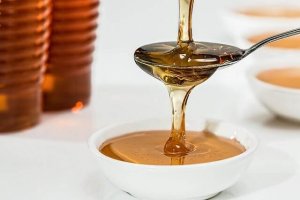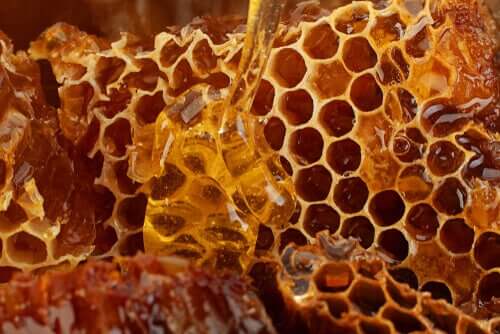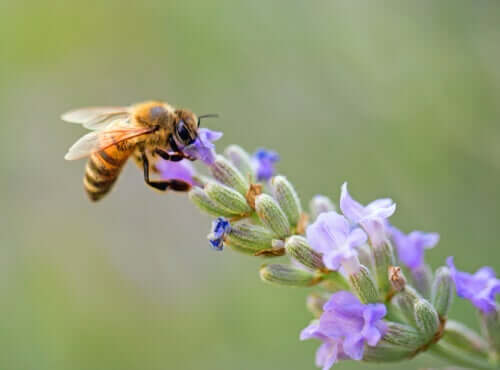Bee Products and Their Health Benefits for Dogs

Nature provides many things that are great for our health. One example of this is bee products and the many properties that can benefit us and our dogs. It’s not the kind of food you have to include in their daily diet, however. Just use them as a supplement once in a while.
There are bee products in all sorts of snacks, and even in skincare items and shampoos. It seems we’ve used them since ancient times, not only as part of our diet but also as a poultice for wounds and to prevent and treat breathing problems. So today we’d like to tell you more about bee products and their characteristics.
Bee products – honey

Honey is highly rich in nutrients and also in fructose, which is a type of sugar. (As with everything, moderation is key here so don’t give your dog too much of it, especially if they have or are prone to diabetes.) This wonder of nature contains vitamins, amino acids, minerals, and antioxidants. And, it also has many health benefits such as:
- Antibacterial properties. Honey contains hydrogen peroxide, a glucose oxidase enzyme as well as flavonoids, and phenolic acids which are molecules with bactericidal power. This is one of the reasons why honey is often applied to the skin as an aid in the treatment of all sorts of skin wounds.
- Antioxidants. These are natural substances that prevent the formation of oxides, which in turn delay cell aging. In addition, the proteins and amino acids in these are the production basis of our own proteins.
- Anti-inflammatory power. Honey reduces inflammation and any pain associated with it. It’s often the main ingredient in cough medications.
- Promotes digestion. It helps metabolize food, thus aiding digestion and also relieving the symptoms of reflux and constipation.
- Improves skin and hair appearance. Honey provides hydration, and therefore softness and shine to animal hair. In fact, there are many shampoos that contain this ingredient.
Other bee products

Propolis
This is a resinous substance that bees produce when they mix saliva, beeswax and other substances they get from flowers. It’s a mixture of balms, essential oils, and waxes that are rich in phenolic compounds and has the same properties described above. Above all, this bee product stimulates an animal’s immune system.
Propolis is often used as a topical antibiotic in the treatment of ear infections in dogs due to its antibacterial and anti-inflammatory properties. That is, you can take care of the bacteria and reduce the inflammation with propolis.
Royal jelly
Royal jelly is a product made by worker bees from the secretions from the glands on their heads with which they feed the larvae during their first days of life. It’s referred to as “royal” because the queen bee feeds on it for a longer time.
This substance has all the properties of honey described above but in a more concentrated dose. Currently, there are many nutritional supplements for dogs that contain it as it provides vitality, energy and strengthens the immune system. This is particularly helpful during the winter.
Pollen
Bees use the pollen of the flowers they collect on their legs to feed the larvae in their hive throughout their development. It’s a highly nutritious ingredient that’s rich in proteins, minerals, vitamins, essential fatty acids, and flavonoids. It’s a great addition to a balanced diet.
As you can see, honey is increasingly used as a diet supplement among pet owners. It’s as popular as salmon oil, flaxseed oil, seaweed, and echinacea. However, always consult your veterinarian before using natural remedies so you can avoid any problems such as allergies or intestinal disorders.
Note that there are many adulterated bee products out there, especially in the supermarkets and large retail chains. So, find a reliable source for your honey. Any labels should say 100% honey and it should be raw — pasteurization basically kills all of its properties. If you can, purchase it directly from a honey producer.
All cited sources were thoroughly reviewed by our team to ensure their quality, reliability, currency, and validity. The bibliography of this article was considered reliable and of academic or scientific accuracy.
- Revista psicología y mente.Miel de abeja: 10 beneficios y propiedades de este alimento.
- Portal veterinaria. Aprovechan propiedades del propóleo para el tratamiento de otitis en perros.
This text is provided for informational purposes only and does not replace consultation with a professional. If in doubt, consult your specialist.